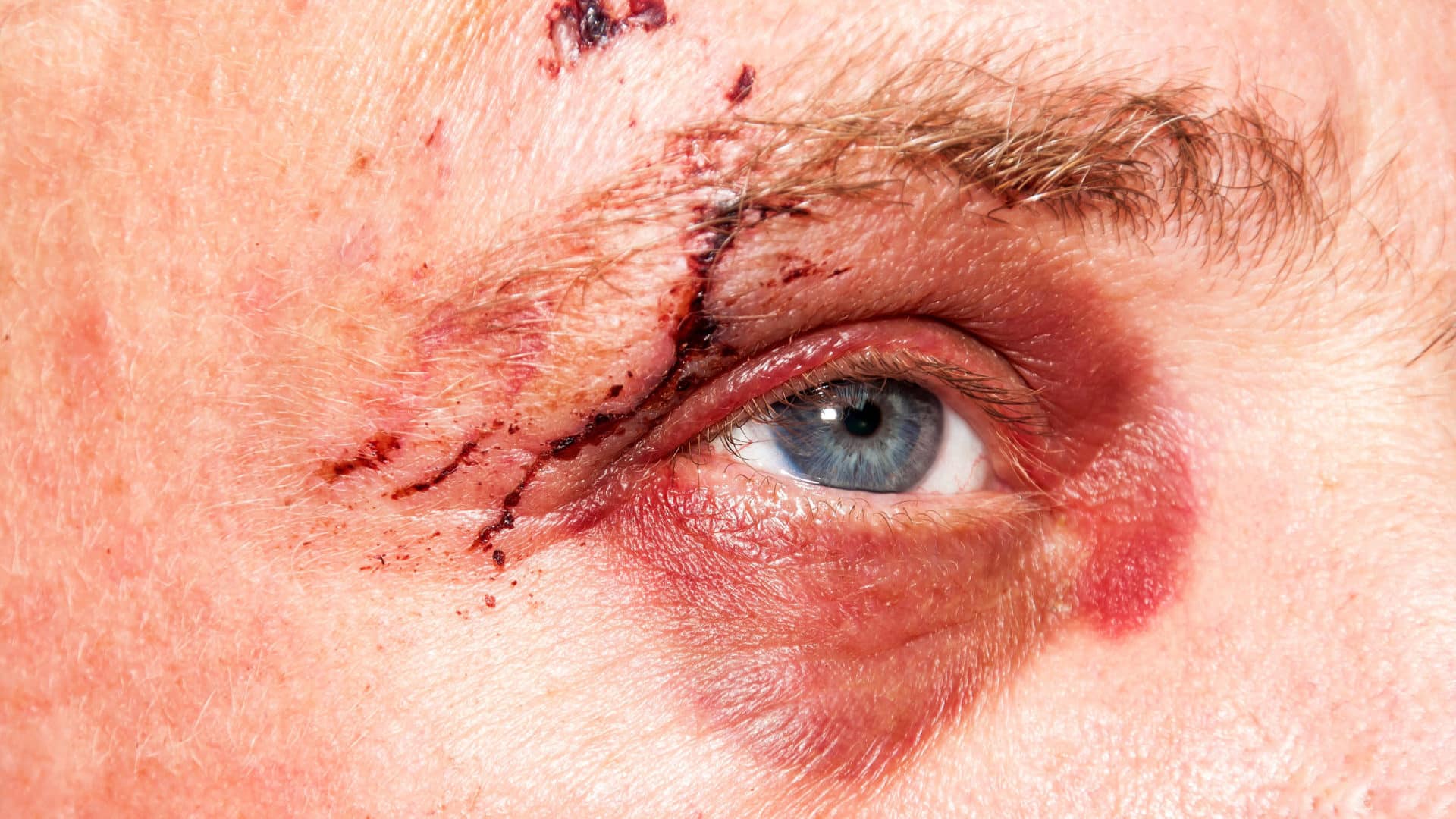In LA County alone, pet lovers own roughly 2.6 million cats and dogs – it’s hard to go on a walk without passing by at least a dog or two (or double-taking when you see a cat on a leash).
For dog owners, knowing whether you’re liable if your dog bites someone can help you take the right safety measures to protect your pup. For other civilians, understanding your options in the event of a dog bite attack enables you to stay safe and pursue the compensation you deserve if a dog bites you.
Have you been bitten by a dog? Call us at (800) 501-3011 for help from an award winning team of dog-bite lawyers.
Dog Bite Levels: Dog Attack Injury Scale
The Association of Professional Dog Trainers (APDT) uses a system developed by Dr. Ian Dunbar, a leading veterinarian, to determine the severity of dog bites. A dog bite is:
- Level one if the dog behaves “obnoxiously or aggressively” toward another human or animal but does not actually make skin contact with their teeth.
- Level two — the dog makes skin contact with their teeth but fails to puncture the skin. However, nicks or slight bleeding may still be present.
- Level three — the bite results in one to four punctures from a single bite, with no puncture deeper than half the length of the dog’s canine teeth. Lacerations may also occur as a result of the dog or owner’s movement.
- Level four — if the bite results in one to four punctures from a single bite, with at least one puncture deeper than half the length of the dog’s canine teeth. Level four bites also often result in deep bruising.
- Level five — the dog bites a victim multiple times, resulting in at least two level four bites or multiple attacks involving at least one level four bite.
- Level six — the attack leaves a victim dead.
According to the APDT, level one and two dog bites comprise “well over 99% of dog bite incidents.” The association states that dogs who display behavior consistent with level one, two, and three attacks can often resolve their behavioral issues fairly quickly with training. However, it also notes that dogs involved in level four, five, or six attacks are typically very difficult to train due to “insufficient bite inhibition.”
While the APDT recognizes that level four or five biters can potentially be trained to correct their behavior, it recommends euthanasia for dogs that carry out level six attacks.
Are Dog Owners Liable for Bites in California?
California is a strict liability state for dog bites, meaning defendants in dog bite cases (usually the dog owner) are often automatically liable for damages caused. According to California Civil Code §§ 3342:
“The owner of any dog is liable for the damages suffered by any person who is bitten by the dog while in a public place or lawfully in a private place, including the property of the owner of the dog, regardless of the former viciousness of the dog or the owner’s knowledge of such viciousness.
A person is lawfully upon the private property of such owner within the meaning of this section when he is on such property in the performance of any duty imposed upon him by the laws of this state or by the laws or postal regulations of the United States, or when he is on such property upon the invitation, express or implied, of the owner.”

As a result, dog owners are liable for most bites, unless the bite victim is unlawfully on their private property. In such cases, the dog owner may claim that the bite victim was trespassing.
It’s important to note that bite victims must still prove that the circumstances of the attack make the owner liable. This often includes proving that the dog owner has legal ownership of the canine in question, that the accused dog was actually responsible for the attack, and that the victim was not trespassing when the attack occurred. In cases where the dog is under the care of a dog walker or housesitter, the legal owner is typically still liable for the attack.
If a dog bites you and the owner flees the scene in a car, see if you can get a license plate number. If the dog is left behind and safely contained, see if it has any identifying contact information, such as a collar with an address or phone number, or a microchip.
If the pet owner fails to provide you with their contact information and the dog’s medical history within 48 hours, they may face legal penalties.
A Dog Bit Me – What Should I Do?
—It’s always better to be safe than sorry. If a dog bites you, seek medical assistance as soon as possible.
If a dog bites you, you should immediately attempt to get the contact information of the dog’s owner, as well as the dog’s breed.
To receive compensation for your injuries, you may need to file a personal injury lawsuit against the dog owner’s homeowner’s insurance company or directly against the owner if they don’t have insurance.
A dog bite does not need to break your skin for you to have a case – owners have previously been held liable when their dog caused another person to fall after closing their jaws around clothing or limbs but failing to break the skin.
You should contact the police after the attack if possible. A law enforcement professional can help assess the situation and verify the legitimacy of the incident, reducing the burden of proof for the injured party.
If a dog bites you, you should take the following precautions:
- Thoroughly wash the wound out with mild soap and warm water, keeping it under water for five to 10 minutes. After washing the bite, try to staunch the bleeding with a clean cloth, and apply antibiotic cream to the wound. Finally, wrap the wound in a sterile bandage.
- See a doctor and show them the bite. Your doctor can identify whether you need to take additional measures, such as getting a tetanus booster or stitches, to help the wound heal.
- Change the bandage regularly and follow any additional instructions provided by your doctor to help the wound heal.
Monitor the wound for signs of infection. Your dog bite wound may be infected if:
- The area around the wound is particularly tender, becomes numb, or swells;
- It becomes more difficult to use the limb or digit nearest to the bite, or you notice significant muscle weakness or tremors;
- You notice pus or other fluids oozing from the wound;
- It becomes more difficult to breathe;
- You feel fatigued or contract night sweats;
- You notice stiffness in your neck, jaw, or abdominal muscles, or experience painful body spasms.
While most dog bites do not result in infections, those that do must be treated proactively to ensure the bite victim’s well-being.
Pasteurella is the most common type of dog bite infection, constituting around 50% of cases. Bite victims may also contract other infections such as staphylococcus aureus, corynebacterium, anaerobes, capnocytophaga canimorsus, and rabies in exceedingly rare instances.
Treatment for infected bites typically includes saline or povidone-iodine solution irrigation administered by medical professionals, prophylactic antibiotics, tetanus toxoid, and occasionally operative treatment such as debridement to preserve the health of tissue around the bite.

Of course, not all dogs have owners. If a stray dog bites you, you must be able to prove that the dog escaped the care of a government agency, such as your city’s animal shelter, before attacking you. Under such circumstances, you may be able to file a case against the city or municipality you reside in.
If a stray dog bites you on someone else’s property, you probably won’t be able to file a case against the property owner successfully.
In California, the only way to take ownership of a stray domestic animal is by adopting one from an animal control agency or rescue organization that has held the animal for the mandated holding period, and ownership is a prerequisite to liability for dog bites.
What If the Owner Flees the Scene?
Fleeing the scene of a dog bite attack is punishable by a fine of up to $100. Under California Penal Code §§ 398(a):
“If a person owning or having custody or control of an animal knows, or has reason to know, that the animal bit another person, he or she shall, as soon as is practicable, but no later than 48 hours thereafter, provide the other person with his or her name, address, telephone number, and the name and license tag number of the animal who bit the other person.
If the person with custody or control of the animal at the time the bite occurs is a minor, he or she shall instead provide identification or contact information of an adult owner or responsible party. If the animal is required by law to be vaccinated against rabies, the person owning or having custody or control of the animal shall, within 48 hours of the bite, provide the other person with information regarding the status of the animal’s vaccinations. Violation of this section is an infraction punishable by a fine of not more than one hundred dollars ($100).”
Are Police or Military Liable for Dog Bite Attacks?
Police and military dogs are typically exempt from other laws governing dog bites. However, there are circumstances where a police dog or their controlling officer may be held liable for a bite.
Under the Fourth Amendment, people have “the right… to be secure in their persons… against unreasonable… seizures.”
Defendants have previously leveraged the Fourth Amendment to argue that a police dog used unreasonable force in a search or seizure and should be liable for a bite as a result.
For example, in Chew v. Gates (9th Cir. 1994) 27 F.3d 1432, 1444., Thane Chew fled from police at a traffic stop and hid between two dumpsters. Police utilized a dog to seize Chew after locating him. A German Shepherd bit his arm as part of the seizure, causing him to sustain severe injuries.
Chew later sued the City of Los Angeles, Police Chief Daryl Gates, and various other members of the police department for violating his Fourth and Fourteenth Amendment rights. The first ruling, which was later appealed, granted a summary judgment to all defendants except Officer Daniel Bunch, who assaulted Chew after loosing the dog to initiate the seizure. The jury returned a general verdict of $13,000 against Bunch.
In the appeal, the United States District Court for the Central District of California ruled that the District Court “erred in holding the police department’s policy governing the use of dogs constitutional.” However, the Court also ruled that the officers involved in the case had qualified immunity because they not reasonably be expected to identify the constitutionality of the department’s dog policy.
The case has since been cited in various dog bite cases against police where individuals contend a seizure involving a police dog violated their Fourth and/or Fourteenth Amendment rights.
What Should I Do If My Dog Bites Someone in California?
If your dog bites someone, you must provide the bite victim with your contact information and your dog’s medical history within 48 hours of the incident.
This should include your dog’s vaccination history to prove your dog has a rabies vaccine if three months or older (as mandated by the state of California), as well as any conditions they may have.
What Happens to My Dog If They Bite Someone in CA?
When a dog bites someone in California, the owner must quarantine them for at least ten days, either at home or at a county animal care center, to ensure the dog doesn’t have rabies or other diseases that could make it a danger to the public.
What happens to your dog if they bite someone largely depends on the circumstances of the incident. In most dog bite cases, the owner must conduct training with their dog to try and reduce the animal’s aggression. However, a dog that has a history of aggressive behavior and represents a threat to the public may need to be euthanized.
When Can Someone Legally Kill a Dog?
In California, individuals have the right to legally kill any animal “known as dangerous to life, limb, or property” (Cal. Penal Code §§ 599c).
An individual who kills a dog that is another person’s personal property must prove that the animal represented a threat that warranted its destruction.
Additionally, government officials such as animal control officers typically have legal authority to impound or kill animals deemed a threat to public safety. However, they must go through various legal protocols to do so. Owners typically have an opportunity to contest the need for such actions.
My Dog Was Attacked By Another Dog – What Can I Do?
California’s strict liability for dog bites also applies when a dog bites another canine, meaning the biter’s owner is liable.
If another dog attacks yours, get the owner’s information and request the biting dog’s medical history. You may be able to file a dog bite case against them or their homeowner’s insurance.
What Compensation Can I Receive From a Dog Bite Case?
The average dog bite settlement in California is about $51,000, according to a joint study from the American Veterinary Medical Association, the Insurance Information Institute, and State Farm.
Dog bite victims often file a personal injury lawsuit against the owner’s home or renter’s insurance, but may file a case against the owner if they don’t have insurance.
Due to California’s strict liability legislation, most dog bite cases are relatively straightforward and end with the dog owner or their insurance provider compensating the injured party for treatment and other expenses.
If a dog bites you, you may be able entitled to compensation for:
- Medical expenses. Medical and hospital expenses accrued as part of your recovery efforts can be recovered.
- Pain and suffering. In many cases, victims of dog bite attacks are left with lasting psychological trauma. You may be able to seek additional compensation for pain and suffering incurred due to your dog bite injury.
- Lost wages. If your dog bite injury made it difficult or impossible to work, you might be able to pursue damages for lost wages.
- Disability benefits. If a dog bite caused you to become disabled, you could recover disability benefits.
If you’ve been bitten by a dog—we can help.
At Wilshire Law Firm, PLC, our dog bite lawyers are dedicated to helping bite victims receive the compensation they deserve. Our team will advocate for your rights, supporting you while you navigate your case and injuries. Even better? You don’t pay unless we win.
To schedule a consultation with our award-winning team, contact us online or via phone at (800) 501-3011.











